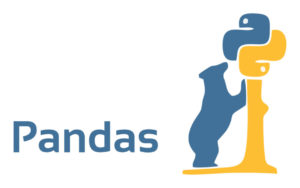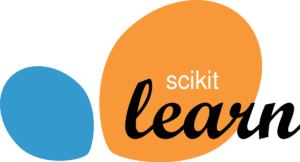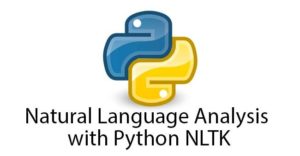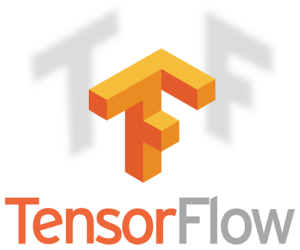Data Science and Machine Learning Internship ...
- 22k Enrolled Learners
- Weekend/Weekday
- Live Class
Machine Learning ecosystem has developed a lot in the past decade. The AI community is so strong, open and helpful that there exist code, library or blog for almost everything in AI. If you want to start your journey in this Magical world, now is the time to get started. In this article on Machine Learning libraries, we will discuss an exhaustive list of libraries to handle most of the Machine Learning tasks.
To get in-depth knowledge of Artificial Intelligence and Machine Learning, you can enroll for live Machine Learning Engineer Master Program by Edureka with 24/7 support and lifetime access.
Here’s a list of topics that will be covered in this blog:
The term Machine Learning was first coined by Arthur Samuel in the year 1959. Looking back, that year was probably the most significant in terms of technological advancements.
If you browse through the net about ‘what is Machine Learning’, you’ll get at least 100 different definitions. However, the very first formal definition was given by Tom M. Mitchell:
“A computer program is said to learn from experience E with respect to some class of tasks T and performance measure P if its performance at tasks in T, as measured by P, improves with experience E.”
In simple terms,
Machine learning is a subset of Artificial Intelligence (AI) which provides machines the ability to learn automatically & improve from experience without being explicitly programmed to do so.
To learn more about Machine Learning you can go through these blogs:
Now let’s move ahead and discuss the Machine Learning libraries.
To provide a structure to our discussion, we will discuss Machine Learning libraries as follows:
Purpose | Libraries |
Scientific Computation | Numpy |
Tabular Data | Pandas |
Data Modelling & Preprocessing | Scikit Learn |
Time-Series Analysis | Statsmodels |
Regular Expressions, NLTK | |
Deep Learning | Tensorflow, Pytorch |
Numpy or numerical Python is arguably one of the most important Python packages for Machine Learning. Scientific computations use a ton of matrix operations. And these operations can be pretty computationally heavy. Implementing them naively can easily lead to inefficient memory usage.

Numpy arrays are a special class of arrays that do these operations within milliseconds. These arrays are implemented in C programming language. In tasks like Natural Language Processing where you have a large set of vocabulary and hundreds of thousands of sentences, a single matrix can have millions of numbers. As a beginner, you have to master using this library.
Pandas
In simple terms, Pandas is the Python equivalent of Microsoft Excel. Whenever you have tabular data, you should consider using Pandas to handle it. The good thing about Pandas is that doing operations is just a matter of a couple of lines of code. If you want to do something complex, and you find yourself thinking about a lot of code, there is a high probability that there exists a Pandas command to fulfill your wish in a line or two.
 Right from data manipulation, to transform it, to visualize it, Pandas does it all. If you aspire to be a Data Scientist or are looking to ace Machine Learning competitions, Pandas can reduce your workload and help you focus on the problem-solving part and not writing boilerplate code.
Right from data manipulation, to transform it, to visualize it, Pandas does it all. If you aspire to be a Data Scientist or are looking to ace Machine Learning competitions, Pandas can reduce your workload and help you focus on the problem-solving part and not writing boilerplate code.
Scikit Learn
Scikit Learn is perhaps the most popular library for Machine Learning. It provides almost every popular model – Linear Regression, Lasso-Ridge, Logistics Regression, Decision Trees, SVMs and a lot more. Not only that, but it also provides an extensive suite of tools to pre-process data, vectorizing text using BOW, TF-IDF or hashing vectorization and many more.

It has huge support from the community. The only drawback is that it does not support distributed computing for large scale production environment applications well. If you wish to build your career as a Data Scientist or Machine Learning Engineer, this library is a must!
If you want to fast forward your career in AIML, then take up these AI ML Courses by Edureka that offers LIVE instructor-led training, real-time projects, and certification.
Statsmodels
Statsmodels is another library to implement statistical learning algorithms. However, it is more popular for its module that helps implement time series models. You can easily decompose a time-series into its trend component, seasonal component, and a residual component.
You can also implement popular ETS methods like exponential smoothing, Holt-Winters method and models like ARIMA and Seasonal ARIMA or SARIMA. The only drawback is that this library does not have a lot of popularity and thorough documentation as Scikit.
To learn more about Time Series Modeling, you can go through this video recorded by our Machine Learning Experts:
This video will give you all the information you need to do Time Series Analysis and Forecasting in Python.
Regex or Regular Expressions
Regular expressions or regex is perhaps the simplest yet the most useful library for text processing. It helps find text according to defined string patterns in a text. For example, if you wish to replace all the ‘can’t’s and ‘don’t’s in your text with cannot or do not, regex can do it in a jiffy.
If you wish to find phone numbers in your text, you just have to define a pattern and regular expressions with return all the phone numbers in your text. It not only can find patterns but can also replace it with a string of your choice. Making correct matching patterns can be a little confusing in the beginning, but once you get a hang of it, its fun!
NLTK
NLTK or Natural Language Toolkit is an extensive library for Natural Language tasks. It is a go-to package for all your text processing needs – from word tokenization to lemmatization, stemming, dependency parsing, chunking, stopwords removal and many more.
 Text processing is extremely important for any NLP task like Language Modeling, Neural Machine Translation or Named Entity Recognition. It also provides a synonym bank called wordnet.
Text processing is extremely important for any NLP task like Language Modeling, Neural Machine Translation or Named Entity Recognition. It also provides a synonym bank called wordnet.
Tensorflow
Tensorflow is by far currently the most popular library with extensive documentation and developer community support. It was created by Google. For product-based companies, Tensorflow is a no brainer because of the ecosystem it provides for model prototyping to production. Tensorboard, a web-based visualization tool helps developers to visualize model performance, model parameters and gradients.

A major criticism about Tensorflow in the community is its implementation of graphs. A graph is a set of operations you define. For example, c = a+b, d = c*c is a graph the does two operations on 4 variables. In python, you can perform the first step, get the value of c and then use it to calculate d. In Tensorflow, you have to compile the graph first. This means Tensorflow will first arrange all the operations and then execute them all at once.
Unlike Python which is define by run, Tensorflow is define and run. This makes debugging cumbersome. In the recent Tensorflow summit, they have made changes to enable the define by run mode using eager execution. However, when it comes to the production environment, Tensorflow provides frameworks like Tensorflow Lite (for mobile devices) and TensorFlow Serving for deploying models.
Pytorch
In a single line, Pytorch is everything Tensorflow is not. It was developed by Facebook as a Pythonic version of the original library Torch, which is a deep learning framework written for Lua programming language.
Unlike Tensorflow, it was designed to be as Pythonic as possible. One major way in which it blows Tensorflow out of water is its execution of Dynamic Graphs. You can define your model components on the go. This is a blessing if you want to do research where you need this kind of flexibility with low-level APIs.

If you are a beginner and wish to get your hands dirty, Pytorch is your thing. Since it is relatively new, it isn’t as popular as Tensorflow. But the community is changing its preferences rapidly.
Now that you know the top Machine Learning libraries and packages, I’m sure you’re curious to learn more. Here are a few blogs that will help you get started with Data Science:
If you wish to enroll for a complete course on Artificial Intelligence and Machine Learning, Edureka has a specially curated Machine Learning Certification that will make you proficient in techniques like Supervised Learning, Unsupervised Learning, and Natural Language Processing. Check out this Artificial Intelligence Certification Course by Edureka to upgrade your AI skills to the next levelIt includes training on the latest advancements and technical approaches in Artificial Intelligence & Machine Learning such as Deep Learning, Graphical Models and Reinforcement Learning.
 REGISTER FOR FREE WEBINAR
REGISTER FOR FREE WEBINAR  Thank you for registering Join Edureka Meetup community for 100+ Free Webinars each month JOIN MEETUP GROUP
Thank you for registering Join Edureka Meetup community for 100+ Free Webinars each month JOIN MEETUP GROUP
edureka.co
